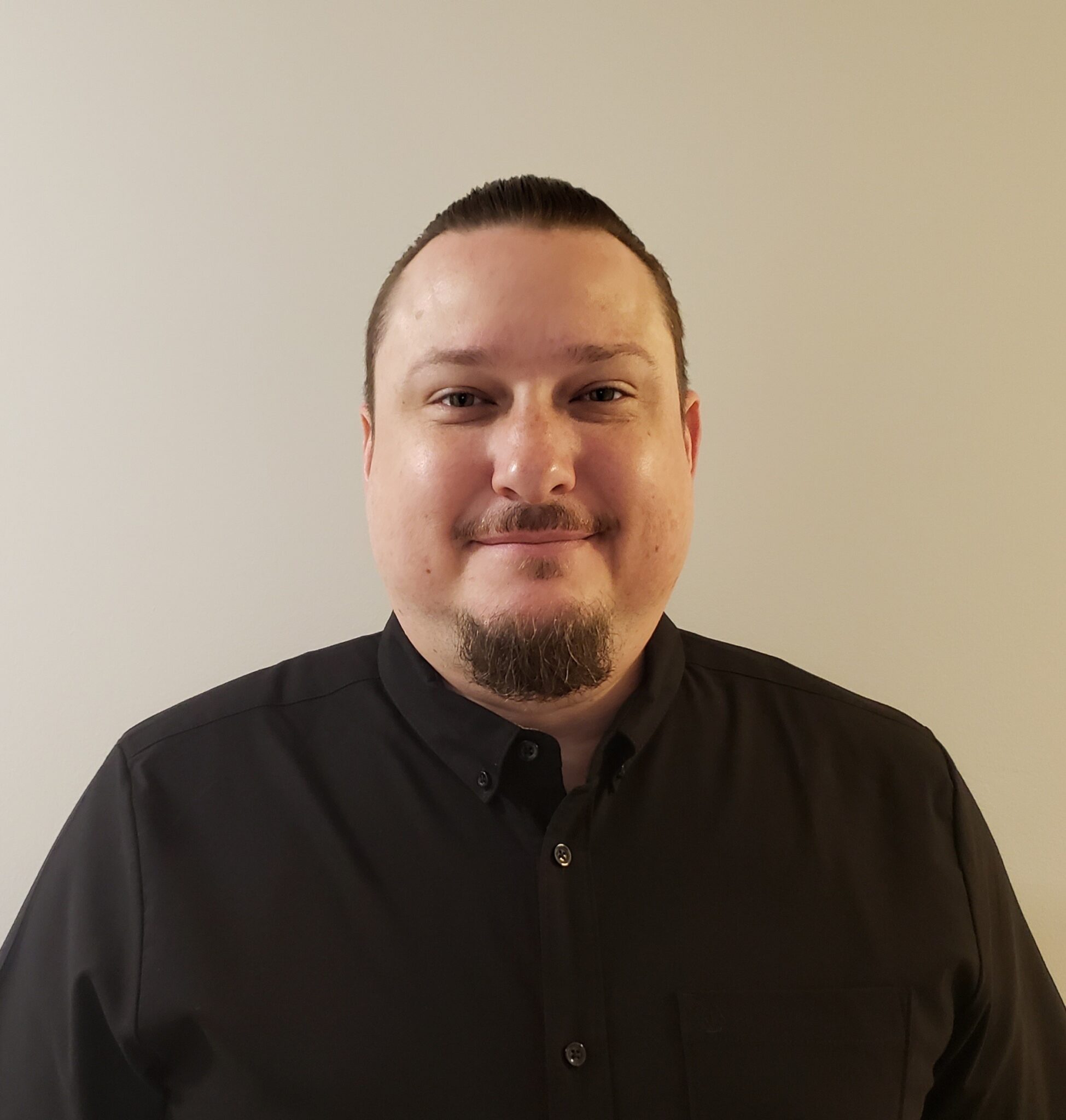In Autumn Quarter 2021, WRD welcomed Dr. Michael Gallaway to the full-time faculty as a Professional Lecturer. This quarter Professor Gallaway is teaching undergraduate students in WRD 103 Composition and Rhetoric I and will teach WRD 104 Composition and Rhetoric II in the Winter Quarter 2022.
Professor Gallaway comes from San Antonio where he received his PhD in Rhetoric and Creative Writing from the University of Texas – San Antonio. He said the move to DePaul was prompted largely by the university’s support of his research aspirations: “The main reason I chose DePaul was the WRD department’s faith and support of my research. The hiring committee expressed genuine interest in my theoretical perspectives and my teaching philosophies, and they believed in my potential.”
Professor Gallaway’s Research
Rhetorical intersectionality greatly informs Professor Gallaway’s research. His dissertation in particular looked at “the conceptions of racialized oppression as explored through Critical Race Studies.” His dissertation entitled “Ecologies of Whiteness: Critical Disruptions of Rhetorical New Materialisms,” explored “the interplay between the material and discursive elements of oppression, and the concepts of rhetorical new materialism, specifically in the generative nature of the material environment in invention and reception, the mobilizing capability of whiteness, and the coproduction of subjects and objects in a system of oppression.” By centering these elements Professor Gallaway argued that “whiteness should be viewed as material/discursive ecologies” which works to maintain a system of oppression through reinforcing speech.
Professor Gallaway’s dissertation worked well in conjunction with his background in medical rhetorics. At the National Communication Association (NCA) conference in November 2021 he will present his research on the rhetoric of the Zika virus. His argument focuses on how the visceral “monstrous mother and child” imagery popularized through the media furthers the structures of whiteness that emphasize marginalizing factors such as “phenotype, gender, motherhood and Latin America to create an image of fear and exclusion.”
Creative Teaching Practices
Anti-racist scholarship inspires Professor Gallaway’s pedagogical practices. In his classrooms he creates a safe environment for difficult conversations covering everything from issues of race, gender identity, and socio-economics, among others. In this “collaborative and inclusive environment,” students can learn as a cohesive unit. Processor Gallaway presents students with as much choice as he can for writing assignments and tests. He also embraces multi-modal learning by incorporating various forms of media in his teaching and relies less on written text.
Because of the obstacles created by the Covid-19 pandemic, there are many new methods to incorporate into the traditional classroom settings. Part of these new methods is the heavier use of discussion boards for students to converse with one another, particularly for students who are not as comfortable speaking up in class.
Professor Gallaway is excited to be in a new city, one which he sees as a “vibrant, active, and beautiful city,” particularly at a university like DePaul. He is looking forward to connecting with more like-minded scholars both on the faculty as well as the guest speakers who come to campus.
